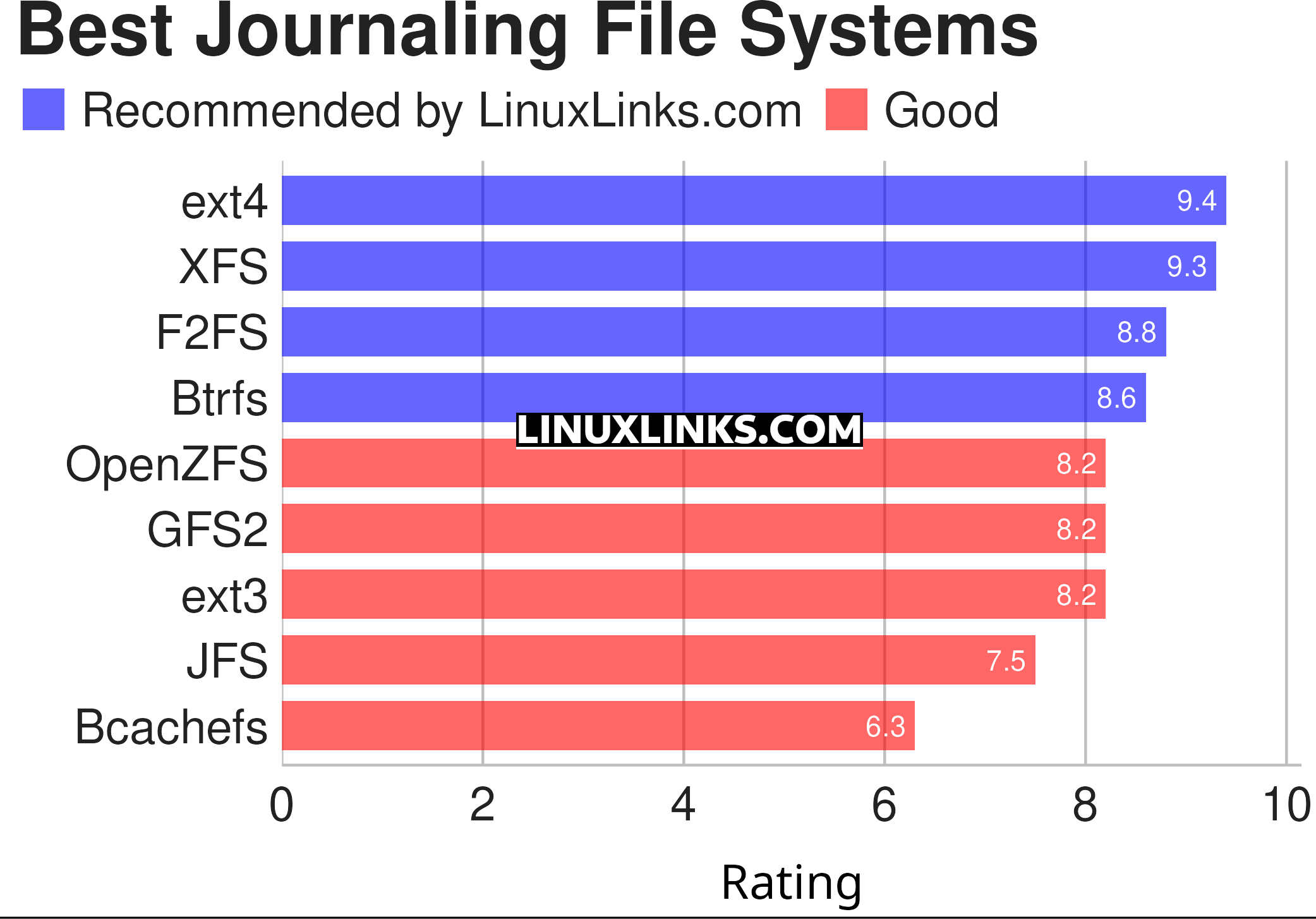In layman’s terms, a computer file system is how a storage device such as a disk drive is able to store, retrieve, and manage files. File systems need to keep track of not only the bits that make up the file itself and where they are placed on the storage device, but also store information about the file. The file system also has to store the name of each file, how to organise files in a hierarchy, and keep metadata such as the file’s modification date.
Even though there are many different file systems available for Linux, most users pay little attention to which file system to use. They are often a forgotten friend. The choice of what file system to use depends on the situation; relevant factors to consider include compatibility, performance, resilience, the media being used, the size and number of the storage medium, features, and security considerations.
A journaling file system is a special type of file system that maintains a tracking file, called a journal. The journal enables the system to repair any inconsistencies that may arise as a result of a system halted abnormally. It does this by keeping track of changes that are made before committing them to the main file system. In the event that the computer is not shut down properly, any data loss can be recreated. This type of file system is therefore less likely to suffer from corruption, and brings file systems back online quickly.
To provide an insight into the quality of journaling file systems that are available, we have compiled a list of our recommended file systems.

Let’s explore the journaling file systems at hand. For each title we have compiled its own portal page, providing a full description with an in-depth analysis of its features, together with links to relevant resources.
| Journaling File Systems | |
|---|---|
| ext4 | Evolved from ext3 adding many notable features including extents |
| XFS | Designed to maintain high performance with large files and file systems |
| F2FS | Flash file system initially developed by Samsung Electronics |
| Btrfs | Checksumming Copy on Write File system |
| OpenZFS | Advanced file system and volume manager originally developed for Solaris |
| GFS2 | Shared disk file system for Linux computer clusters |
| ext3 | Default file system for many popular Linux distributions |
| JFS | Journaled File System |
| Bcachefs | Advanced file system ejected from the mainline kernel |
This article has been revamped in line with our recent announcement.
 Read our complete collection of recommended free and open source software. Our curated compilation covers all categories of software. Read our complete collection of recommended free and open source software. Our curated compilation covers all categories of software. Spotted a useful open source Linux program not covered on our site? Please let us know by completing this form. The software collection forms part of our series of informative articles for Linux enthusiasts. There are hundreds of in-depth reviews, open source alternatives to proprietary software from large corporations like Google, Microsoft, Apple, Adobe, IBM, Cisco, Oracle, and Autodesk. There are also fun things to try, hardware, free programming books and tutorials, and much more. |

